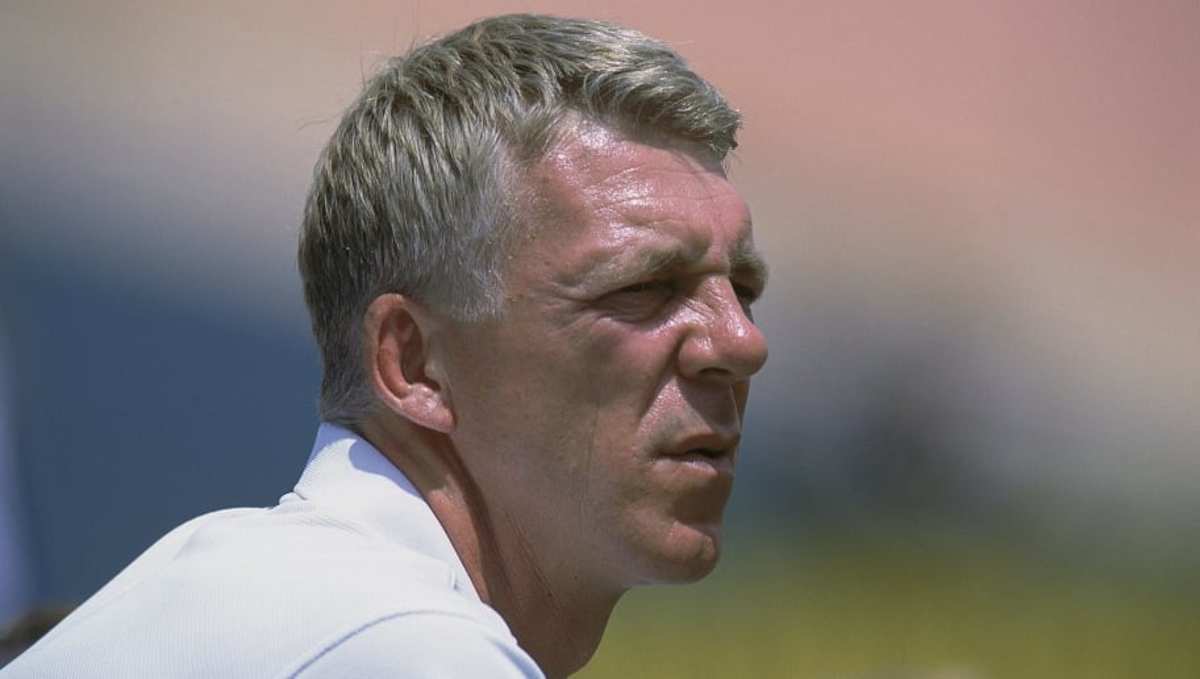Next Goal Wins: Remembering the One Truly Great Football Film That Should've Won an Oscar

Football and film go together like Falcao and Chelsea. Poorly. Both great in their own ways, just seemingly destined to never really work in tandem for inexplicable reasons.
Unlike boxing, which seems to be the high watermark of sport depicted on the big screen - with genuine classics like Raging Bull, Rocky, When We Were Kings, Million Dollar Baby and Creed - football, the world's most popular (and arguably most emotive) sport has rarely been transferred successfully to a cinematic context.
1981's Escape to Victory has elevated itself to cult status, as much for its bizarre cameos from Pele, Bobby Moore and... err John Wark alongside Sylvester Stallone and Michael Caine, as for the actual plot.
Other efforts at portraying the football field on the silver screen range from the truly woeful (Goal! trilogy) to the guiltily endearing (Mike Bassett: England Manager).
The 2009 Brian Clough biopic The Damned United rises above most for its depiction of a managerial icon, but features very little actual football. Bend It Like Beckham remains the other obvious example that separates itself from the absolute dearth, without reaching Raging Bull heights either.
Fortunately, however, the category of documentary offers at least one truly great football film.
The area of non-fiction has consistently produced the finest examples of the beautiful game at in cinema over the years. The Four Year Plan, The Two Escobars, Kicking Itand Substitute are all interesting, with each covering a widely different facet of the game from homelessness, to murder, to boredom on the bench and are well worth seeking out.
However, the Oscar for Best Football Film really must go to (drum roll)... Next Goal Wins.
Mike Brett and Steve Jamison's 2014 documentary following Dutch coach Thomas Rongen and his rag tag, bottom of the FIFA World Rankings American Samoa team on their quest to win a game of football against all the odds is the one truly brilliant piece of football filmmaking, that was sadly overlooked by the Academy Awards upon its release, despite critical acclaim.
For those unfamiliar with the story, Pacific Islanders American Samoa are the worst of the worst. Their footballing nadir came in 2001 at the hands of regional heavyweights Australia who dished out a now infamous 31-0 thrashing - the heaviest loss in the history of international football.
The film uses that scarring defeat as the backdrop for the narrative ten years later, as new coach Rongen - a grizzled pro with decades of experience in the USA and a touch of Louis van Gaal about him - jets in to try and help the players get over their cycle of defeat, put humiliation behind them and just maybe even win a game in the upcoming World Cup qualifiers.
Uplifting and celebratory, Next Goal Wins covers more elements than just the classic sporting underdog story, although what an underdog story it proves to be.
It is also enlightening on the social and cultural issues of the island - most notably with regard to the team's (and FIFA's only) transgender star Jaiyah Saelua, and provides an insight into a part of the world with which very few are familiar.
The film also serves as travel porn for the adventurous, with epic shots of the luscious tropical paradise and the team's training pitch ringed by palm trees rather than fans.
Almost uniquely for a football movie, it also manages to successfully incorporate on the pitch moments from the final act as actual drama, in which to become as fully invested as if watching a live match involving your club.
BBC and Guardian critic Mark Kermode championed the film for its ability to engage the viewer regardless of your interest in the sport. However, while no previous knowledge may be required, the film rewards those with a passion for football and certain scenes like slide tackling practice in the pouring rain resonate so much stronger with those who know the unique joys of trudging to training in less than forgiving weather conditions.
It's a shame Next Goal Wins didn't get the recognition it deserved in 2014 and failed to make the shortlist at either the Oscars or BAFTAs, but as a joyous depiction of the true wonder and strange magic of association football it stands alone (31-0 up) against all other competition for the title of finest film ever made about the beautiful game.
At least until we get the Jamie Vardy biopic...







